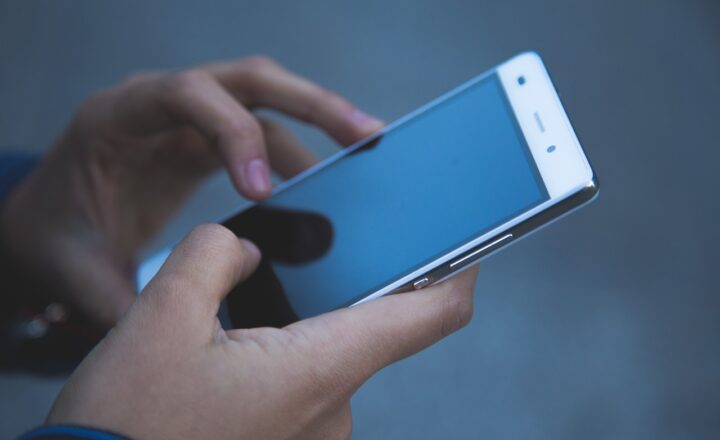Conversations with Strangers: How Online Dating Has Changed Relationships Forever
November 19, 2024

The way we connect, interact, and form romantic relationships has evolved dramatically over the past few decades. Gone are the days of relying solely on chance encounters or introductions through friends. The advent of online dating has revolutionized the landscape of relationships, creating new opportunities and challenges that come with meeting people through digital platforms. This article delves into how online dating has transformed the concept of love, connection, and relationships today.
1. The Rise of Online Dating
Online dating began with the emergence of the internet in the late 20th century. Early platforms offered simple matchmaking based on user profiles, allowing singles to connect with potential partners in a way never seen before. Fast forward to today: according to surveys, nearly 40% of Americans now use online dating sites or apps, with platforms like Tinder, Bumble, and Match.com leading the charge.
How did it become so mainstream? Here are a few reasons:
- Access to a Larger Pool: People can connect with potential partners beyond their geographic location, expanding their dating horizons to include individuals they may never meet in their local communities.
- Convenience: Users can browse profiles and chat with potential matches from the comfort of their homes at any hour, making dating more accessible than ever.
- Diverse Options: Online dating accommodates people of various backgrounds, sexual orientations, and relationship preferences, fostering inclusivity.
The statistics further emphasize the significance of this shift in how we pursue romantic connections, leading to both exciting and complicated dynamics.
2. Changing the Dynamics of Connection
One of the most notable impacts of online dating is the shift in the way people initiate relationships. Traditionally, initiating a romantic connection could involve overcoming social anxieties related to physical interactions. Online dating allows you to break through these barriers by starting conversations in a less pressured, more controlled environment.
Additionally, the nature of interactions has changed. Conversations can be longer, relaxed, and more thoughtful, allowing individuals to express themselves better before meeting face-to-face. This change has ushered in both positive and negative effects:
- Positive Effects: Enhanced communication skills develop as users practice engaging with different types of personalities and learn how to express their preferences and boundaries effectively.
- Negative Effects: Some users may find themselves feeling overwhelmed by the abundance of choices, leading to decision fatigue and challenges in making real emotional connections.
This shift in dynamics represents a broader change in cultural expectations surrounding dating and relationships.
3. The Influence of Technology and Algorithms
Modern online dating platforms utilize advanced algorithms to enhance user experiences and match individuals more successfully. These algorithms analyze user data based on preferences, likes, and relational histories to suggest potential matches.
However, this matchmaking process can come with challenges:
- Compatibility vs. Mystery: While algorithms aim to find compatible matches, they may also lead users to overlook potential partners outside the suggested criteria, limiting the diversity of their experiences.
- The Role of Branding: Many users polish their profiles to present idealized versions of themselves, which may result in a misrepresentation of the individual behind the profile, creating mismatched expectations when meeting in person.
This blending of high-tech matchmaking with deeply personal pursuits complicates the online dating landscape but also presents unique opportunities for those willing to explore and navigate through them.
4. The Impact of Online Dating on Relationships
Studies show that couples who meet online report higher satisfaction levels and are more likely to lead to long-term relationships compared to those who meet through traditional means. This phenomenon results from several factors intrinsic to online dating:
- Greater Transparency: Online interactions encourage users to be upfront about their intentions, leading to honest discussions about expectations before meeting in person.
- Shared Experiences: Many dating apps foster connection through shared interests, lifestyles, and values, encouraging matches based on compatibility rather than purely physical attraction.
- Openness to Diversity: Online dating introduces users to diverse relationship structures and ideologies, broadening perceptions of love and companionship beyond traditional norms.
While the impact is frequently positive, there are also cautionary tales as relationships born from online dating may hit obstacles due to external societal pressures, skepticism from friends and family, or differing expectations post-relationship initiation.
5. Navigating the Challenges of Online Dating
Despite the benefits, online dating is not without its challenges. Users must approach it with caution to avoid pitfalls that may arise:
- Misrepresentation: Users must remain vigilant about the potential for misrepresentation in profiles, whether through outdated or heavily filtered photos or exaggerated personal information.
- Safety Concerns: Taking steps for personal safety, such as meeting in public spaces and informing friends about dates, is crucial in an age where anonymity can lead to dangerous situations.
- Emotional Effects: Constantly searching for suitable partners may lead to a rollercoaster of emotions, from excitement and hope to disappointment and burnout, which can impact mental health negatively.
Addressing these challenges requires personal responsibility, self-awareness, and open communication to navigate this new dating landscape successfully.
6. The Future of Online Dating and Relationships
As technology continues to evolve, the landscape of online dating will inevitably change. Innovations such as virtual and augmented reality and machine learning could reshape how people connect and communicate.
For example:
- Virtual Dating Experiences: Platforms may introduce virtual dating environments where users can interact in 3D settings, enhancing the connection experience before meeting in person.
- AI-Enhanced Matching: Future platforms may utilize AI to dive deeper into user behaviors and preferences, potentially leading to even more successful connections.
- Increased Focus on Mental Health: With growing awareness of mental health issues, dating platforms may implement features aimed at supporting users’ emotional well-being, facilitating healthier dating habits.
The future of online dating carries immense potential, and with each technological leap, we move further into uncharted waters of love and connection.
Conclusion
Online dating has undeniably altered the relationships landscape forever, shifting how we connect, communicate, and grow alongside our romantic partners. While it brings with it unique advantages and challenges, the core requirement remains constant: genuine connection.
As we navigate this digital landscape, we must wait to meet potential partners with open hearts and minds, ready to embrace the richness that these conversations with strangers deliver. The relationships that blossom from online dating can indeed transform our lives, allowing us to foster love and companionship in ways that millions are discovering every day—even if it begins with a simple swipe on a screen.






